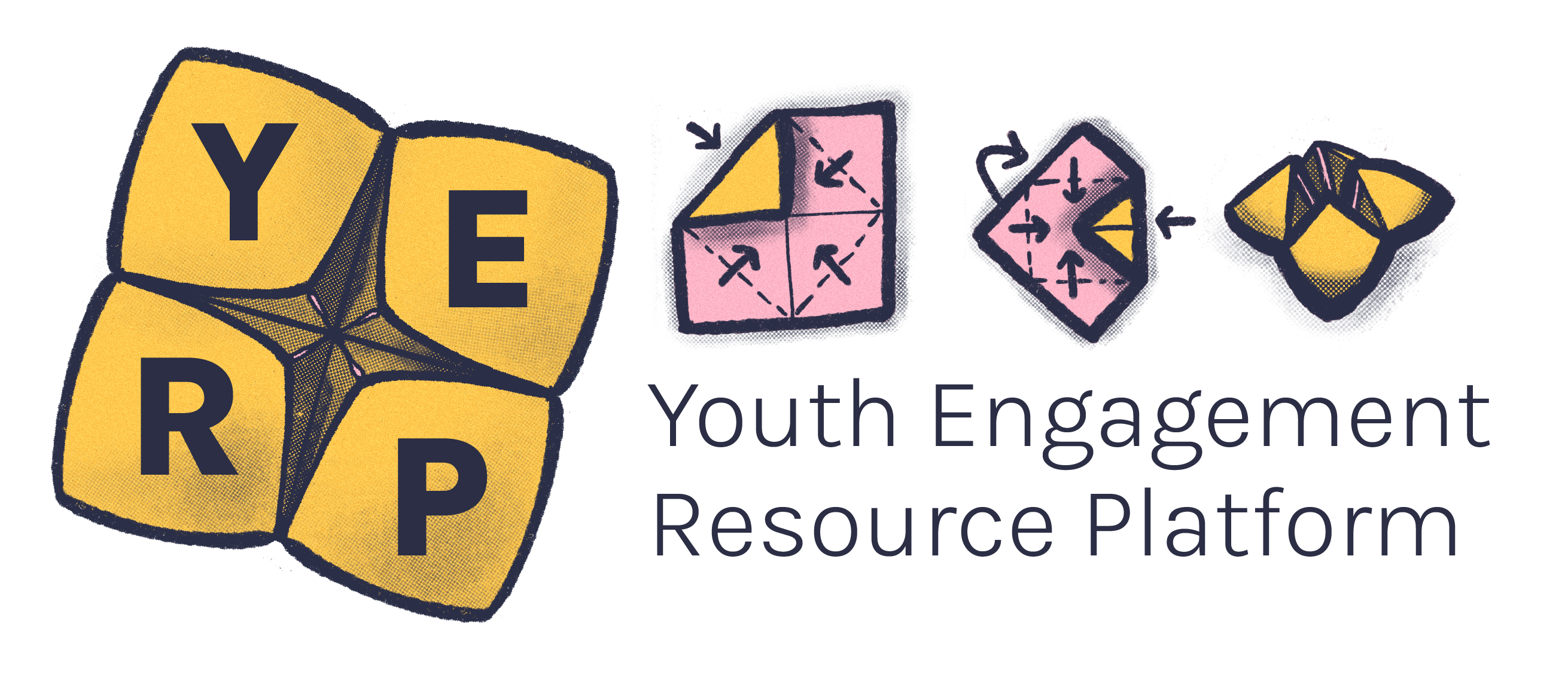As a young person, it is so important to understand your rights to be able to advocate for them and yourself. It’s also important to find a trusted youth worker to help you advocate for yourself and your rights.
Where your legally recognised rights came from...
Agreed on by world leaders in 1989, the United Nations Convention on the Rights of the Child (UNCRC) argues that children and young people are human beings and individuals in their own right, and they have their own rights which must be upheld.
It has since achieved a range of outcomes, inspiring governments around the world to change laws and policies to protect children and young people, and ensure they can thrive in different environments.
Please note, the Convention describes a child as being any human under the age of 18. However most youth workers and youth organisations across Australia recognise a young person as being between the ages of 12-25. For the purposes of this resource, the Convention has been interpreted to apply to all children and young people.
Different environments and contexts have distinct implications for your rights. However, regardless of the setting, you have the right to feel safe and be safe.
Being safe means you are free from abuse, harassment, discrimination or inappropriate behaviour. Feeling safe means you are comfortable in the places where you spend time, and can trust the adults around you.
You have a right to:
-
Be safe and feel safe wherever you are
-
Expect that the adults around you are keeping you safe
-
Be given information about how to raise a safety concern
-
Be listened to and for action to be taken if you have a safety concern.
Knowing your rights and obligations is one of the most important things you can do to prevent workplace problems.
At work, issues relating to race, age, sex and disability discrimination may occur, so it’s important to know your rights and responsibilities in this environment.
The National Employment Standards (NES)
These are the 11 minimum employment entitlements that apply to most employees:
-
Maximum weekly hours
-
Requests for flexible working arrangements
-
Offers and requests to convert from casual to permanent employment
-
Parental leave and related entitlements
-
Annual leave
-
Personal/carer's leave, compassionate leave, family and domestic violence leave
-
Community service leave
-
Long service leave
-
Public holidays
-
Notice of termination and redundancy pay
-
Fair Work Information Statement (the FWIS) and Casual Employment Information Statement (the CEIS).
Remember, these are the very minimum standards you are entitled to, and you may have more rights and entitlements you can find depending on your workplace.
A great place to start looking for specific information on your workplace is your Enterprise Agreement (EA). An EA contains the terms and conditions for your employment, clearly stating your entitlements as an employee.
Not all workplaces have an EA. Other places to look for information could be your employment contract and organisation's policies and procedure documents.
Key workplace policies and procedures
-
Staff code of conduct
-
Child safe code of conduct
-
Recruitment
-
Whistleblower
-
Leave entitlements
-
Parental leave
-
Professional development
-
Equal employment opportunity
-
Working from home
-
Flexible work arrangements
-
Bullying and harassment
-
Internal grievance
-
Flexitime, overtime and time-in-lieu (TIL)
-
Travel and working away from home, vehicles
-
Disciplinary
-
Diversity and inclusion
This list is not complete and your workplace may have policies and procedures unique to them. The main thing is to access and read your workplaces policies and procedures – they will give you a solid understanding of your rights.
Bullying and harassment in the workplace
Workplaces should feel safe and comfortable while you are there and whenever you engage with co-workers.
Under the Occupational Health and Safety Act (2004), bullying and occupational violence is illegal.
If you believe you are being bullied or harassed at work you should:
-
Take firm, decisive and prompt action.
-
If you feel comfortable, tell the person that you find their behaviour offensive, unwelcome, unacceptable, and that it needs to stop immediately.
-
If the behaviour continues, or if you don’t feel comfortable telling the person, seek advice from someone else you trust in the organisation such as your line manager or someone from human resources (HR). They will support and guide you on how to resolve the situation
Firstly, as set out in in Article 28 of the UNCRC, you have a right to education.
Secondly, schools have a legal duty of care to protect you and other students from harm, and to do what is reasonable to ensure you are safe at school.
In the context of school and your rights, it's important to be aware of your right to not be discriminated against.
Discrimination means treating or suggesting to treat someone unfairly because of one or more of their personal characteristics. This can happen in different places and contexts and may be direct or indirect.
For example, if you are a trans and gender diverse student it is discriminatory, and therefore unlawful, for a school to treat you less favourably than other students because of your gender by:
-
Refusing or failing to accept your application into the school
-
Only admitting you as a student on certain terms (that would not generally apply to others)
-
Denying you access, or limiting your access, to any benefit provided by the school
-
Expelling or subjecting you to any disadvantage
These are examples of direct discrimination.
Indirect discrimination occurs where a requirement, condition or practice is applied to all students equally but its application is likely to have the effect of disadvantaging students with a particular characteristic.
This is a photo of a school corridor with bright white walls and windows.

-
You have the right to receive the best healthcare available that is planned and coordinated.
-
You have the right to be treated with respected, free from discrimination.
-
You have the right to be fully informed, ask questions and be given answers about things relating to you.
-
You have the right to be involved in making decisions that affect you.
-
You have the right to be protected from harm.
-
You have the right to privacy and confidentiality.
-
You have the right to education, rest, play, creative activities and recreation regardless of your status of health.
Having a support person or interpreter is also your right. This way you can ensure you receive the right healthcare information in a way that makes sense for you, and that you are comfortable and supported when receiving that information.
This is a photo of a doctor's arms crossed, holding a stethoscope

-
Work in a healthy and safe environment
-
Be covered by equal opportunity and anti-discrimination legislation
-
Be adequately covered by insurance
-
Be given accurate and truthful information about the workplace and receive an appropriate training
-
Be reimbursed for out-of-pocket expenses
-
Not fill a position that a paid worker has done before you
-
Not do the work of paid staff during industrial disputes
-
Have a job description and agreed working hours
-
Have your personal information dealt with confidentially
Workplaces often have a volunteer policy and procedure, so check that out as a first step.
Many workplaces will also send you volunteer documents to read and sign before you begin. They may include:
-
Volunteer agreements
-
Volunteer induction forms
-
Staff code of conduct
-
Child safe code of conduct
-
Grievance policy and procedure
Workplaces should also send you any other policy that affects our relates to your work. If the workplace you volunteer for doesn’t send you any documents, you can request them. It’s your right to know your rights.
Your right to participate as a young person is a human right, written in three articles of the UNCRC, cementing them into international law.
-
Article 12: You have the right to say what you think should happen when adults are making decisions that affect you.
-
Article 13: You have the right to get, and to share, information.
-
Article 15: You have the right to meet with other children and young people and to join groups and organisations.
YouthLaw legal advocate for young people.
WEstjustice provides free legal help to people in the Western suburbs of Melbourne.
Flemington & Kensington Legal Centre assist people and communities to assert their rights, and access justice.
Young Workers Centre provides free advice and representation to young people under the age of 30 with employment law issues.
Oaktree Youth Participation Practice Network Presentation on youth participation and a gap Oaktree have found in international human right law.
- Association for the Wellbeing of Children in Healthcare. (2018). Charter on the Rights of Children and Young People in Healthcare Services in Australia. https://awch.org.au/wp-content/uploads/2018/10/kids-rights-in-healthcare-australian_version_final_210911web.pdf
- Commission for Children and Young People. (2023). Your Rights. https://ccyp.vic.gov.au/children-and-young-people/your-rights/
- Fair Work Ombudsman. (2023). National Employment Standards. Australian Government. https://www.fairwork.gov.au/employment-conditions/national-employment-standards
- Justice Connect. (2021). What legal rights do you have at school as a trans or gender diverse young person. https://justiceconnect.org.au/resources/your-legal-rights-at-school-vic/
- United Nations Children’s Fund. (2023). The Convention on the Rights of the Child: The children’s version. https://www.unicef.org/child-rights-convention/convention-text-childrens-version
- Volunteering Australia. (2009). Volunteering Rights & Volunteer Checklist. https://www.volunteeringaustralia.org/wp-content/files_mf/1376971192VAVolunteerRightsandchecklist.pdf





